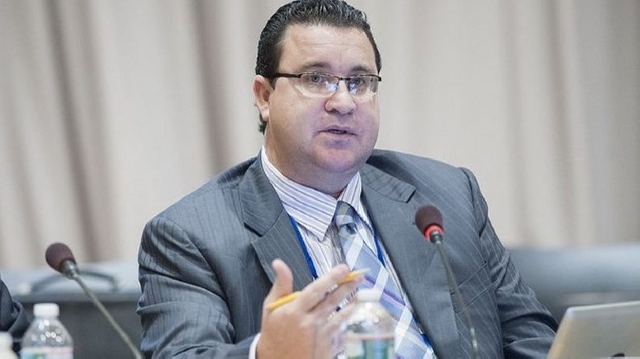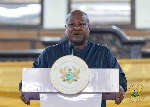Ghana’s unsustainable debt largely attributed to Energy Sector – World Bank Rep
 Pierre Frank Laporte, the World Bank (WB) Country Director to Ghana
Pierre Frank Laporte, the World Bank (WB) Country Director to Ghana
Pierre Frank Laporte, the World Bank (WB) Country Director to Ghana, says Ghana’s energy sector debt is a major contributor to the country’s debt woes.
In an interview monitored by GNA, the country director indicated that his outfit had identified certain factors that were driving the country’s debt situations.
According to Mr Laporte, one of the factors the bank has identified is the energy sector.
He said the deficiencies in the sector characterized by the tariff systems and management issues coupled with expensive power purchases by the state in addition to the transmission losses, were the major problems in the energy sector driving Ghana’s debts.
He said the mismatch between the production cost of the Independent Power Producers (IPPs) vis-à-vis how much consumers paid led to an upsurge of debts since the Government could not make financial commitments to them (IPPs).
Mr Laporte also said the Power Purchasing Agreements (PPAs) the Government had signed were expensive. In addition to the exorbitant power purchases the country was paying for energy it does not use due to the “take or pay contracts.”
“In the case of Ghana, those contracts that have been signed as PPAs are just expensive and the kind of PPAs signed are take or pay. You pay although you do not use it. The fact is that in the past few years, Ghana entered into an agreement at the wrong rate and the wrong price, and it has impacted the debt situation.”
He asked the Government to pursue some reforms in the areas of tariff adjustments, addressing the transmission losses through improved infrastructure and restructuring the power purchasing agreements consistent with the energy demands of the country to reduce a significant portion of the debts.
The WB Country Director acknowledged the progress made thus far via the recent increment and subsequent approval in tariff by the Public Utility Regulatory Commission (PURC), saying much could be achieved if the intended reforms in the energy sector were implemented.
He subsequently advised the Government to take advantage of the West African Power Poll, to provide cheap electricity for its people and industry.
According to the Fitch Ranks, the energy sector is the biggest driver of the national debt as the West African Country currently owes independent power producers to the tune of $ 1.58 billion.
Fitch Ranks also says the country had initially reached out to the IPPs to restructure their debts in view of the External and Domestic Debt Restructuring but the companies objected to the proposal.
Source: GNA
Trending Business

NPA commits to sustainable development through effective petroleum regulation – Tameklo
11:53
Ghana holds debt restructuring talks with Saderea bondholders
11:20
IMF-reported $214m gold trading loss occurred after my exit from PMMC – Nana Awuah
10:08
PMMC turned around from crisis to record profits by 2024 – Former MD
09:42
Leila Djansi: Filmmaker calls for hourly wages and commission-based pay to improve work attitudes in Ghana
00:53
C/R: Planned power outage to hit Cape Coast on January 8
21:15
Ghana not going to IMF after current bailout ends - President Mahama
20:58
BoG calls on UK diaspora to invest beyond remittances
16:44
GRA Tax Division visits Palace Mall to enforce VAT reduction and COVID-19 levy removal
11:56
VALCO targets 5,000 jobs, $1 billion annual GDP
10:50




